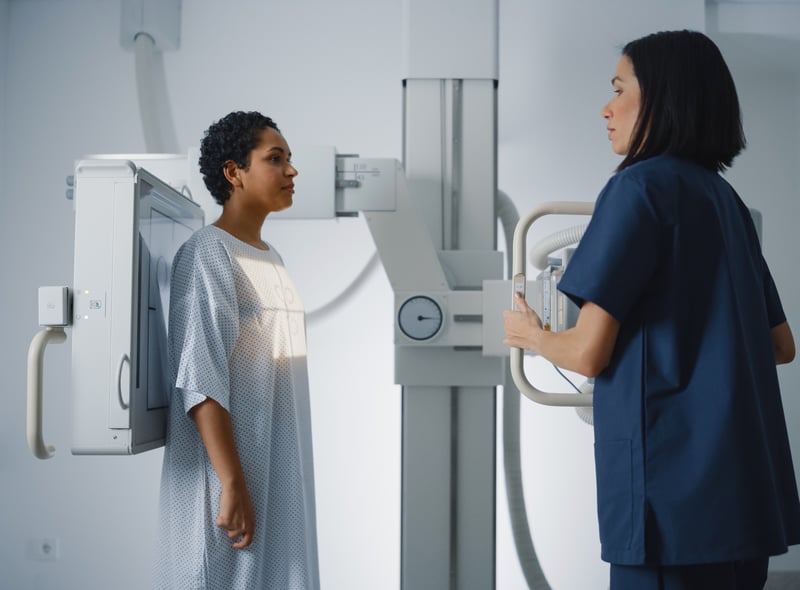Manténgase sano!

- Denise Mann
- Posted June 5, 2023
Consistent Breast Cancer Screening Cuts Odds of Dying From the Disease by 72%
Screening mammograms saves lives, and consistency counts for a lot.
That's the main message from a new study that looked at how regularly women received mammograms before a breast cancer diagnosis. The closer a woman adhered to guidelines on a year-to-year basis, the less likely she was to die of breast cancer.
"It is quite common for women to not receive their mammography exams on time, or they need to reschedule, and that extends the time between the most recent mammogram and the next one,"said study co-author Robert Smith, senior vice president for early cancer detection science at the American Cancer Society. But "if a woman has developed breast cancer, these delays can contribute to being diagnosed with advanced disease and may be life-threatening. "
Most organizations recommend that women begin regular screening for breast cancer in their 40s. The ACS recommends that women should start annual screening with a mammogram at age 45. Women 55 and older can continue yearly screenings or opt for every other year.
These guidelines are for women who are not at high risk for breast cancer, meaning they don't have a personal or strong family history of breast cancer, a gene known to increase the risk of breast cancer, or a history of chest radiation therapy before the age of 30.
For the study, researchers looked at data on more than 37,000 women ages 40 to 69 from nine Swedish counties who had between one and five opportunities for screening mammograms during the study. Of these, 4,564 subsequently died of breast cancer that was diagnosed between 1992 and 2016.
The risk of dying from breast cancer was 72% lower among women who underwent all five screening exams as per guidelines when compared to women who had no mammograms. The more guideline-suggested mammograms women missed, the greater their risk of dying from breast cancer, the study showed.
Mammograms are low-dose x-rays that can help find breast cancer at an early stage, when it is easier to treat.
"Mammography is not perfect, and so if a woman experiences a change in her breast before she begins regular screening, or between exams after she begins screening, she should consult a health professional," Smith noted.
The findings were to be presented Sunday at the annual meeting of the American Society of Clinical Oncology in Chicago. Findings presented at medical meetings should be considered preliminary until published in a peer-reviewed journal.
There has been much debate about when to start breast cancer screening, how often screening should occur, and how many screening exams are necessary. "This study suggests that a missed breast cancer screening has consequences,"said Dr. Arif Kamal, chief patient officer for the American Cancer Society.
"Having three or four mammograms is not as great as having five mammograms,"said Kamal, who had no role in the study.
"Having at least five mammograms preceding the breast cancer diagnosis is important because you would be catching cancer earlier,"Kamal explained.
His advice? Know your risk factors for breast cancer and discuss how and when you should undergo screening with your doctor, he said. "For some women, every other year may make sense, but screening every year should be the default,"he said.
More information
The American Cancer Society has more on screening for breast cancer.
SOURCES: Robert Smith, PhD, senior vice president, Early Cancer Detection Science, American Cancer Society, Atlanta; Arif Kamal, MD, MBA, chief patient officer, American Cancer Society; presentation, American Society of Clinical Oncology annual meeting, Chicago, June 2-6, 2023






